
The new bonobo baby with its mother. (Adam Kay / Twycross Zoo via SWNS)
By Ed Chatterton
Conservationists are celebrating the birth of the United Kingdom's only baby bonobo - in what could be a "milestone" moment in saving the endangered species from extinction.
Adorable photos show first-time mother, 11-year-old Yuli, cradling her tiny newborn after it was born at Twycross Zoo in Leicestershire last Thursday (Sept. 11).
Experts have hailed the birth as a 'globally significant' moment which could help save one of the world's rarest apes and humans’ closest living relative.
Twycross Zoo is the only UK zoo to care for the species and says the new arrival is probably "one of the rarest newborns in the world."
Mum Yuli arrived at Twycross Zoo from Vallée Des Singes in France as part of the European-led conservation programme in 2023.

Bonobos are the world's most endangered ape. (Adam Kay / Twycross Zoo via SWNS)
Dr. Rebecca Biddle, chief conservation officer at Twycross Zoo, said: “The birth of this baby bonobo is a truly extraordinary moment, not just for Twycross Zoo, but globally.
“Bonobos are humans’ closest living relatives, yet they remain one of the most endangered and least understood apes on Earth.
"Every birth is a true milestone and a powerful reminder of what can be achieved when zoos work together.
“It is only through the dedication, expertise, and collaboration of conservation zoos that moments like this are possible.
"As the only UK zoo caring for bonobos, here at Twycross Zoo, we are immensely proud and feel a great responsibility to play our part in protecting this incredible species.
“The arrival of this baby is not just a joyful sign of hope, but a vital step forward to ensuring bonobos have a future for generations to come.”
Bonobos, which are listed as ‘endangered’ on the IUCN Red List of Threatened Species, are humans' closest living relatives, sharing more than 98 per cent of our DNA.

Their populations in the wild are under constant human threats. (Adam Kay / Twycross Zoo via SWNS)
In the wild, their population is said to be decreasing due to many human-caused threats, such as poaching and deforestation.
The zoo, which looks after 10 per cent of the entire European bonobo population, said without conservation effort,s it's "very likely" the species could go extinct "in the near future."
The species, which is only found in the wild in the Democratic Republic of the Congo, is also a highly unique primate due to its matriarchal society.
Typically, primate troops are led by a dominant male, but bonobos are one of few primate species, and the only great ape, to live in female-led societies.
The conservation programme is part of a collaborative effort between EAZA (European Association of Zoos and Aquaria) member zoos.
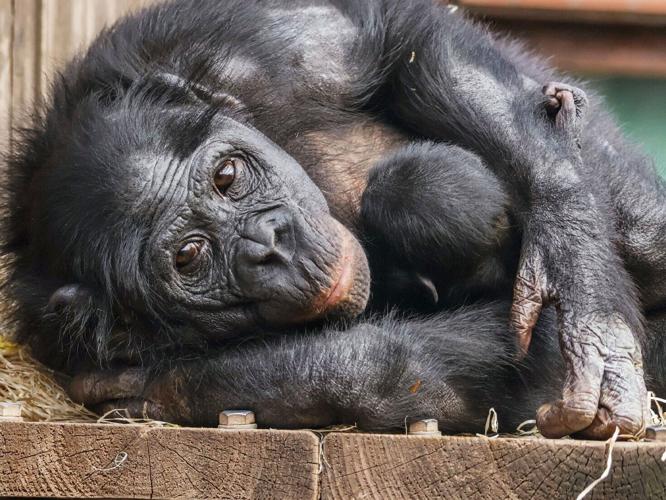
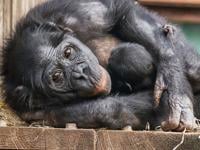

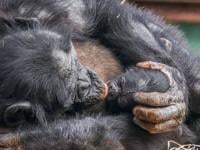

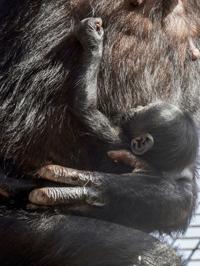

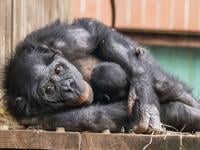
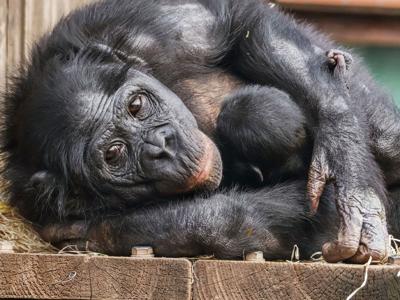













(0) comments
Welcome to the discussion.
Log In
Keep it Clean. Please avoid obscene, vulgar, lewd, racist or sexually-oriented language.
PLEASE TURN OFF YOUR CAPS LOCK.
Don't Threaten. Threats of harming another person will not be tolerated.
Be Truthful. Don't knowingly lie about anyone or anything.
Be Nice. No racism, sexism or any sort of -ism that is degrading to another person.
Be Proactive. Use the 'Report' link on each comment to let us know of abusive posts.
Share with Us. We'd love to hear eyewitness accounts, the history behind an article.